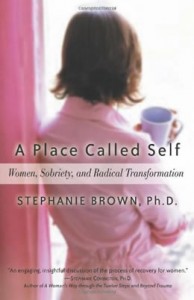 ‘Recovery has held so many surprises for me. Some good. Some bad. I didn’t know I could hurt so much. But I also didn’t know I could love so much and be so loved. I had no idea that recovery was also learning how to be in intimate relationships, learning how to have close, wonderful friends. Then there’s my marriage. My husband and I have developed a rich life together. And get this – I really like myself now. Learning about who I am and accepting me, that’s been the hardest part of recovery – and the best. I wouldn’t trade this path for anything in the world.’ Anne, Recoveree
‘Recovery has held so many surprises for me. Some good. Some bad. I didn’t know I could hurt so much. But I also didn’t know I could love so much and be so loved. I had no idea that recovery was also learning how to be in intimate relationships, learning how to have close, wonderful friends. Then there’s my marriage. My husband and I have developed a rich life together. And get this – I really like myself now. Learning about who I am and accepting me, that’s been the hardest part of recovery – and the best. I wouldn’t trade this path for anything in the world.’ Anne, Recoveree
This quote comes from the most wonderful book, A Place Called Self: Women, Sobriety, and Radical Transformation. Stephanie Brown’s book talks about what happens to women in recovery, how they think, how they feel, their problems, the good things, etc. (And before you ask, the book is relevant to men as well!)
Stephanie Brown describes recovery as a journey, a process. It is a radical change in personal identity (or the self). See the words drugs and alcohol there. Nup! You can recover from all sorts of things, like mental mental health problems, loss of a loved one, trauma, etc.
Of course, if you take the journey to recovery, you are far less likely to have drugs and alcohol impact badly on your life. You will (re)build a meaningful and valued life, where you realise your aspirations, be treated with respect and dignity, and contribute to society. You won’t needs substances to cope with the problems of life.
Stephanie asks ‘Who is the woman in recovery?’ In the book, she talks about a woman who has been actively addicted to a substance, to a repeated compulsive behaviour, or to an individual.
‘You are a woman who has faced yourself and come to a realisation that you have lost control and cannot regain it, if indeed you ever had control. You have come to accept the fundamental, deep reality that you are powerless over your own needs and your actions to meet those needs – your active addiction.’
Stephanie’s book focuses on what happens to the woman who stops her active addiction, the woman who starts ‘a transformational process of new growth and development called recovery.’
Are you interested?


